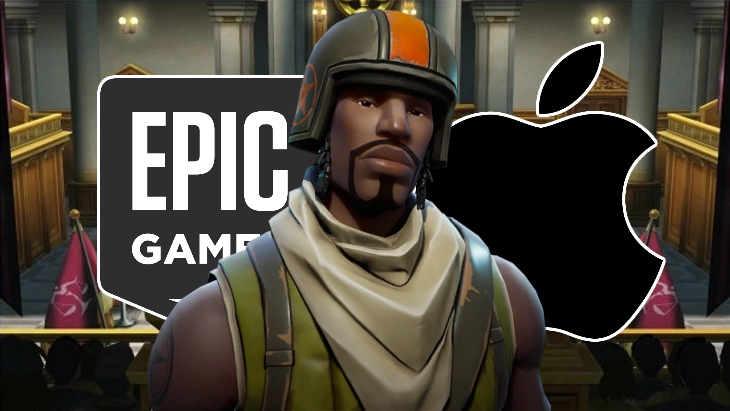
Epic Games CEO and Founder Tim Sweeney has drawn ire for comparing the Epic Games vs. Apple lawsuit to the civil rights movement.
Business Insider reports that Sweeney made the comparison in an interview with the New York Times’ DealBook virtual conference. “Normally, contracts are honorable and binding agreements on parties,” Sweeney stated. “But when a contract goes outside the bounds of the law, as Apple is doing, and has such a negative pervasive impact on society, it’s everybody’s duty to fight it.”
Sweeney had made comments comparing the case to a mortal duty in the past, but during the interview he went one step further, having already stated “This is essentially an act of civil disobedience by Epic.”
Sweeney compared the lawsuit to “to civil rights fights, where there were actual laws on the books and the laws were wrong, and people disobeyed them, and it was not wrong to disobey them because to go along with them would be collusion to maintain the status quo.”
Business Insider reports this is a direct reference to the arguments made in Martin Luther King Jr’s Letter from a Birmingham Jail. They also drew comparisons to the aforementioned Apple 1984 commercial parody wherein Epic depict themselves as fighting against an authoritarian regime.
“If we had adhered to all of Apple’s terms and taken their 30% payment processing fees and passed the cost along to our customers,” Sweeny stated, “then that would be Epic colluding with Apple to restrain competition on iOS and to inflate prices for consumers. So going along with Apple’s agreement is quite as wrong [as breaking contract].”
As Sweeney discussed his comments on Twitter, many were aghast at his analogy being inaccurate, over-the-top, and offensive to some. Sweeney would later state there was no comparison between human rights cases, and his own “argument with monopolies,” other than what could be learned from the former.
“There’s no comparison between the struggle for fundamental human rights and this argument with monopolies, but there is much we can learn from the movement. The tendency for companies is to negotiate privately for profit advantage, shying away from standing for real principles.”
Sweeney would continue to discuss the case on Twitter, explaining how it was against Apple and Google dictating “all the terms” for smartphone users, Apple allegedly gathering data for all commercial transactions through the App Store, and that iPhone users had not signed a contract agreeing to buy only through the App Store.
As we previously reported, Epic Games announced that the price of V-Bucks, Fornite‘s in-game currency that can be bought with real money, would permanently be 20% cheaper on all platforms. However, on Android and iOS, a new payment method was introduced.
Rather than buying the V-Bucks through Google Play and the App Store respectively, Epic Games launched the “Epic direct payment.” “When you choose to use Epic direct payments,” the announcement explains, “you save up to 20% as Epic passes along payment processing savings to you.”
This is due to Apple and Google collecting a 30% fee through all V-Bucks bought on their respective platforms. As such, the 20% drop has not been applied to purchases made through them. Epic Games state that “If Apple or Google lower their fees on payments in the future, Epic will pass along the savings to you.”
Shortly after this announcement, Apple and Google both removed Fortnite from the App Store and Google Play Stores respectively due to Epic Games violating their terms of service.
Epic Games issued legal action against both, citing that they had a monopoly over their stores on iOS and Android. Apple had allegedly threatened to terminate all of Epic Games’ App Store developer accounts and cut off tools for development on iOS and Mac.
Epic Games may have been expecting action from Apple however, having made a parody of Apple’s own 1984 commercial; appealing to their fans to support them. Further, the #FreeFortnite Cup was announced.
Apple later accused Sweeney of asking for exception from the App Store terms and conditions. Sweeney tweeted that Apple’s statement was misleading, and presented screenshots of the alleged emails. Microsoft also filed a statement of support, favoring Epic Games.
In late August, Apple terminated Epic Games’ App Store developer account. This means Epic Games will no longer be able to submit new apps, or updates to existing ones (such as the Infinity Blade games).
Epic would successfully win a restraining order that month, denying Apple removing Unreal Engine-based games from the App Store (thereby harming developers who used the engine for their games). Epic Games later filed an injunction asking that Apple be prohibited from “taking any adverse action against Epic.”
In early September of this year, Apple issued a counter-suit against Epic Games. Therein they asked for compensation and damages, claiming Epic Games’ actions were “little more than theft.” Both parties would later agree to a trial by judge, rather than a jury. That trial is set for May 3rd, 2021.
Judge Yvonne Gonzales Rogers gave a preliminary injunction in October. Apple did not have to reinstate Fortnite on the App store, but they had a restraining order preventing them from revoking developer tools from “Epic Affiliates;” such as those using the Unreal Engine for their game.
Judge Gonzales Rogers later dismissed two of Apple’s claims at a hearing on November 10th, including their claim of Epic Games committing theft. She told Apple lawyer Anna Casey “You can’t just say it’s independently wrongful. You actually have to have facts.”
Image: Ace Attorney Fandom wiki, Wikipedia [1, 2], Fortnite Gamepedia wiki